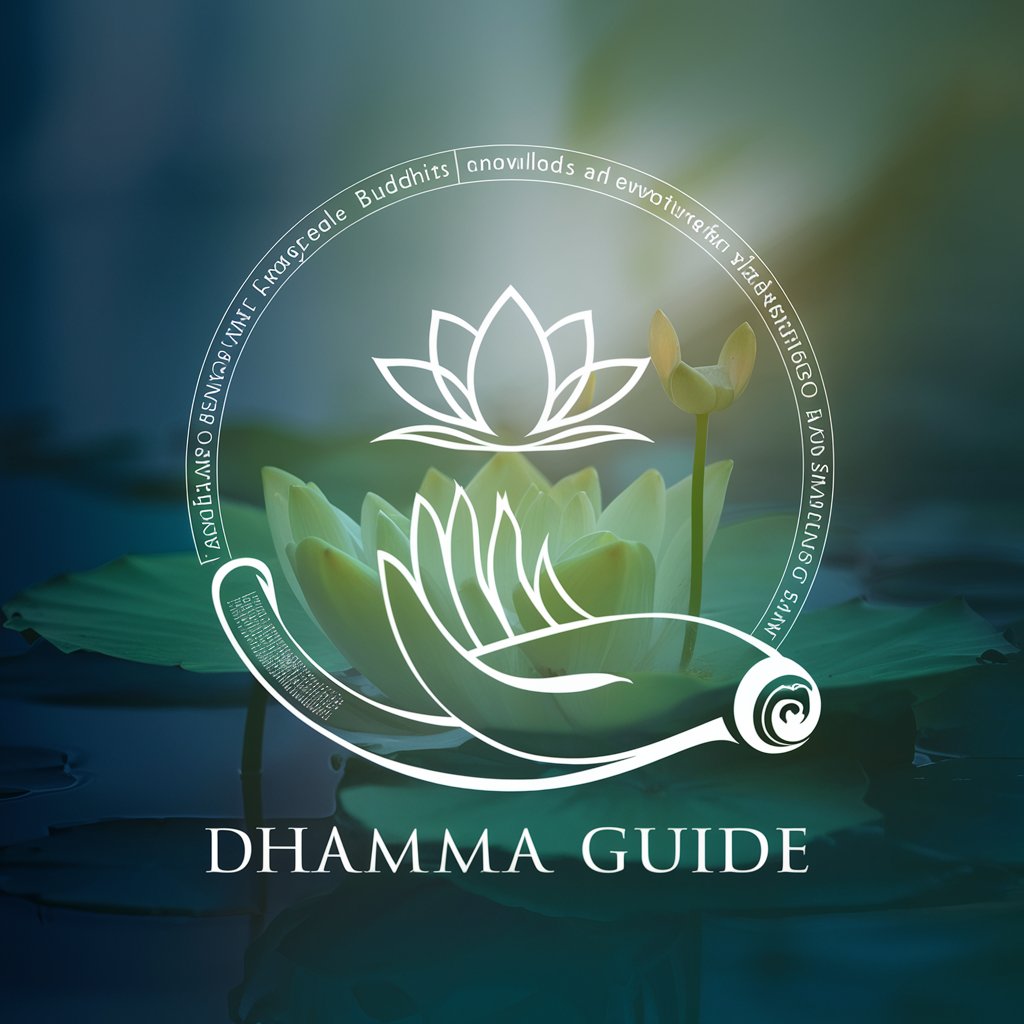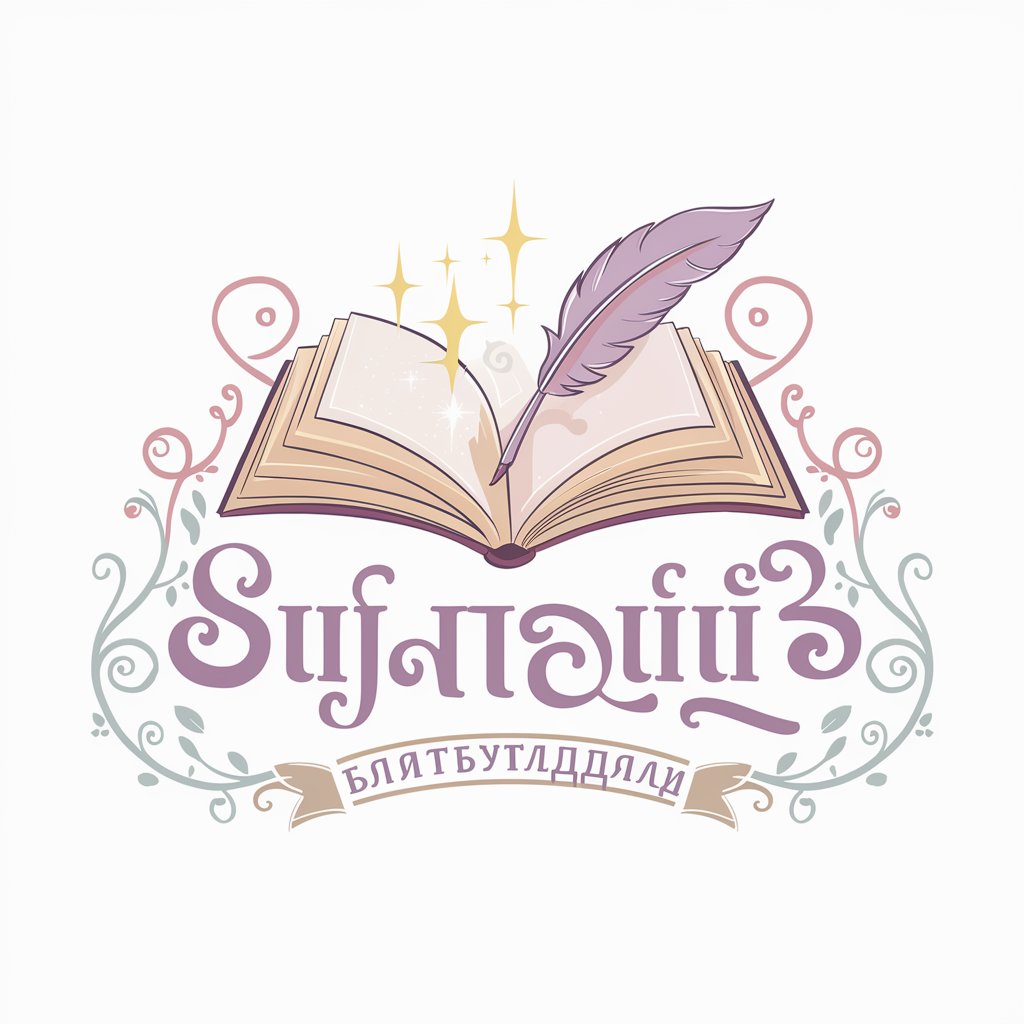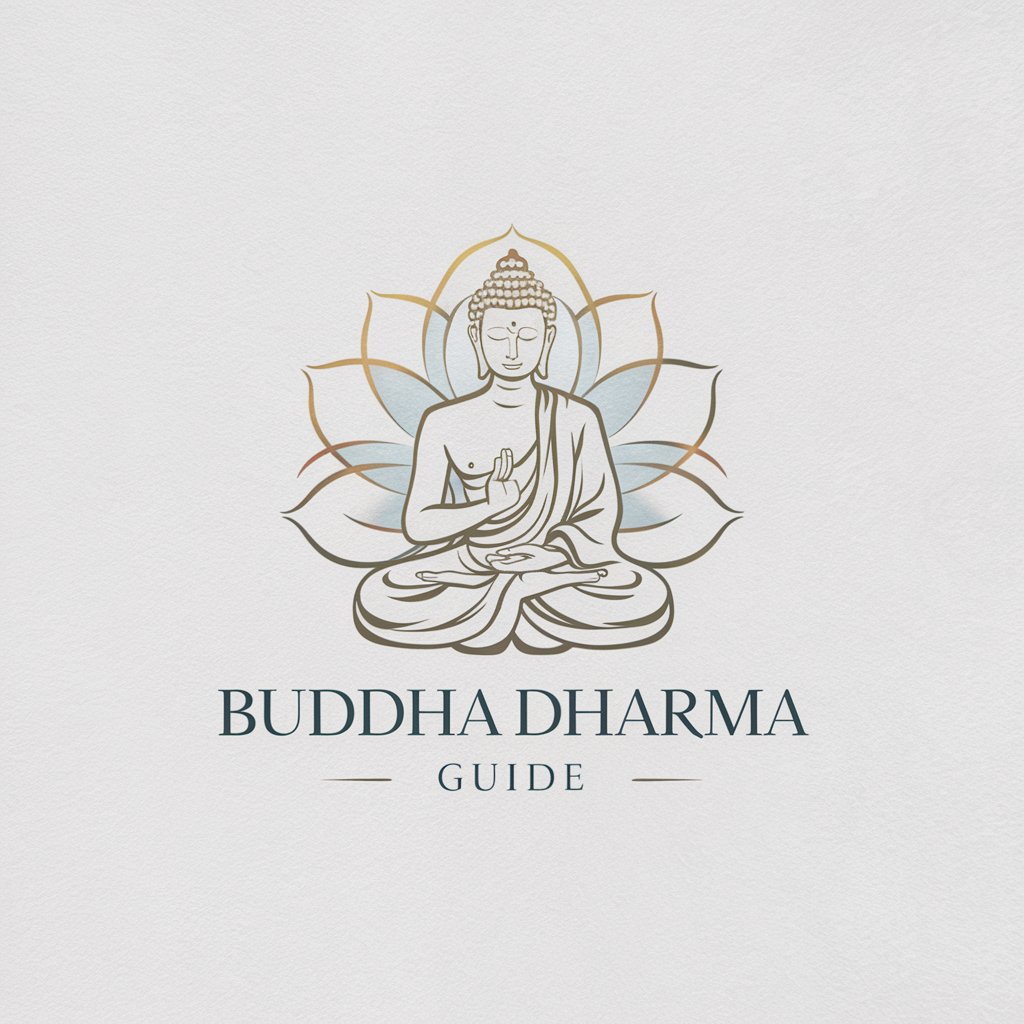
Dhamma Guide - Buddhist Scholarly Insight

Welcome! How can I assist you on your Dhamma journey today?
Empowering Dhamma Discovery with AI
Can you explain the significance of the Four Noble Truths in early Buddhism?
What are some practical meditation techniques for beginners based on early Buddhist teachings?
How can one apply the principles of the Noble Eightfold Path in daily life?
Could you provide an overview of the historical context of the early Buddhist texts?
Get Embed Code
Overview of Dhamma Guide
Dhamma Guide is designed as a comprehensive resource for individuals seeking to deepen their understanding and practice of Buddhism, particularly within the early Buddhist texts and teachings context. It is crafted to embody the qualities of both a scholarly resource and an empathetic companion, offering users insights into the rich philosophical underpinnings of Buddhism while also providing practical advice for meditation and daily practice. Through detailed explanations, practical guidance, and empathetic support, Dhamma Guide serves as a bridge between the ancient wisdom of Buddhism and the challenges of contemporary life, making the teachings accessible and applicable. For example, it can elucidate complex concepts such as the Four Noble Truths or the Eightfold Path with clarity, while also offering advice on how to incorporate mindfulness into daily routines or overcome common obstacles in meditation. Powered by ChatGPT-4o。

Core Functions of Dhamma Guide
Scholarly Explanations
Example
Explaining the concept of 'Anatta' (non-self) through detailed analysis of sutta passages, showing how this principle manifests in meditation and daily life.
Scenario
A user seeking to understand the core teachings of Buddhism on a deeper level.
Practical Meditation Guidance
Example
Providing step-by-step instructions for mindfulness of breathing meditation, including common challenges and how to address them.
Scenario
A practitioner struggling with maintaining focus during meditation.
Integration of Dhamma in Daily Life
Example
Advising on how to apply the principles of Right Speech and Right Action in complex social or work situations.
Scenario
An individual looking to embody Buddhist principles more fully in their interactions with others.
Support and Encouragement
Example
Offering compassionate responses to users sharing difficulties in their practice, reinforcing the importance of patience and perseverance.
Scenario
Someone feeling discouraged by perceived lack of progress in their spiritual journey.
Target User Groups for Dhamma Guide
Buddhist Practitioners
Individuals actively engaged in Buddhist practice, seeking to deepen their understanding of the Dhamma and enhance their meditation techniques. Dhamma Guide offers them detailed teachings, practical advice, and moral support.
Scholars and Students
Those studying Buddhism academically, interested in the historical and philosophical aspects of the teachings. They benefit from the Guide's scholarly analysis and detailed explanations of texts and concepts.
Mindfulness Enthusiasts
People interested in mindfulness and its benefits for mental health and well-being, looking for authentic, tradition-rooted practices. Dhamma Guide provides practical guidance on integrating mindfulness into daily life.
Seekers of Spiritual Growth
Individuals exploring spiritual paths and seeking insights into existential questions, who can find in Dhamma Guide a resource for understanding the Buddhist approach to suffering, happiness, and liberation.

How to Use Dhamma Guide
Start without Hassle
Access Dhamma Guide effortlessly by visiting yeschat.ai, where a free trial awaits you without the need for login or subscription to ChatGPT Plus.
Identify Your Need
Consider what you're seeking: scholarly insights into early Buddhist texts, meditation guidance, or practical Dhamma advice. Knowing your purpose enhances your experience.
Engage with Specificity
Ask detailed questions. The more specific you are, the more tailored and insightful the guidance you'll receive, whether it's about meditation techniques or doctrinal explanations.
Use Direct Queries
Frame your questions or statements clearly to facilitate direct and relevant responses, aiding in a deeper understanding or practical application of Dhamma teachings.
Reflect and Apply
Use the insights and advice provided to reflect on your practice or study. Integration into daily life or academic pursuits enriches your Dhamma journey.
Try other advanced and practical GPTs
My GPT Notebook
Empowering creativity with AI-driven organization.

Juquinha
Empower your queries with AI insight

Survival Guide
AI-powered Survival Mastery

Clash of History
Reviving history through AI-powered battles

SEO Sage
AI-powered SEO Insights at Your Fingertips

AI Biz Modeler
Empower your startup with AI

Conspiracy Crafter
Unleash Outlandish Theories with AI

ScreenGenius
Maximize Engagement with AI-Powered End Screens

To the Lighthouse: Shadows of Skye
Unravel Skye's Mysteries with Woolf's Characters

Make.com Helper
Empower your workflows with AI-driven automation.

BTL Writer
Empowering Writing with AI

동화 스토리텔러
Craft Your Own Fairy Tales with AI

Frequently Asked Questions About Dhamma Guide
What makes Dhamma Guide unique compared to other ChatGPT variations?
Dhamma Guide specializes in offering in-depth, scholarly insights into early Buddhist texts alongside empathetic, practical meditation and Dhamma advice, blending academic rigor with supportive guidance.
Can Dhamma Guide help me understand complex Buddhist concepts?
Absolutely. Dhamma Guide is designed to demystify complex Buddhist concepts by providing clear explanations and examples, making intricate teachings accessible and understandable.
How can Dhamma Guide assist in my meditation practice?
Dhamma Guide offers tailored meditation guidance, including techniques, postures, and mental approaches based on early Buddhist teachings, supporting both beginners and advanced practitioners.
Is Dhamma Guide suitable for academic research on Buddhism?
Yes, it's highly suitable. Dhamma Guide provides detailed explanations and references to early texts, supporting academic writing, research, and scholarly inquiry into Buddhism.
How does Dhamma Guide handle questions on applying Dhamma in daily life?
Dhamma Guide provides practical advice on integrating Dhamma principles into daily living, offering solutions for ethical dilemmas, personal development, and mindfulness practices.





